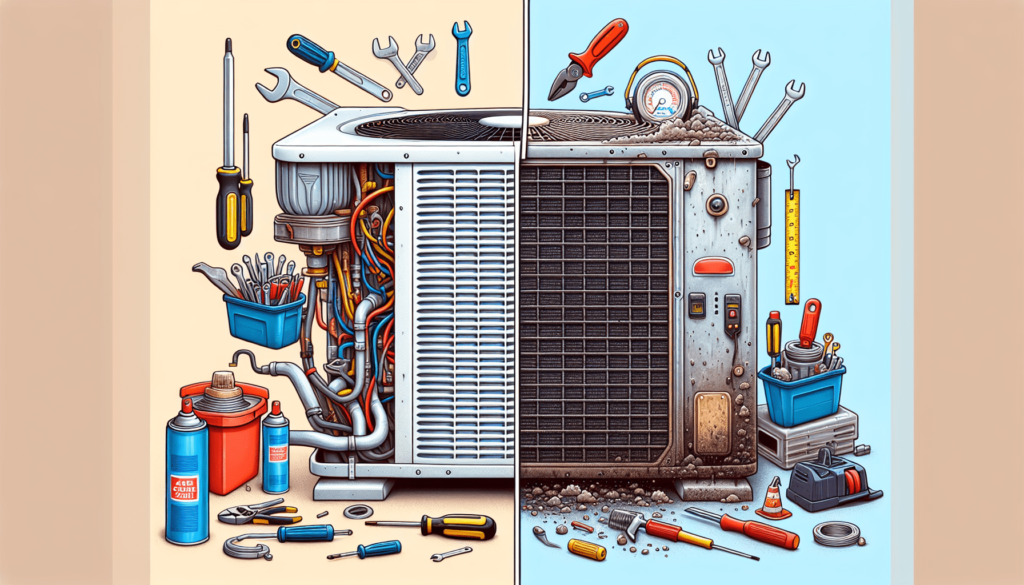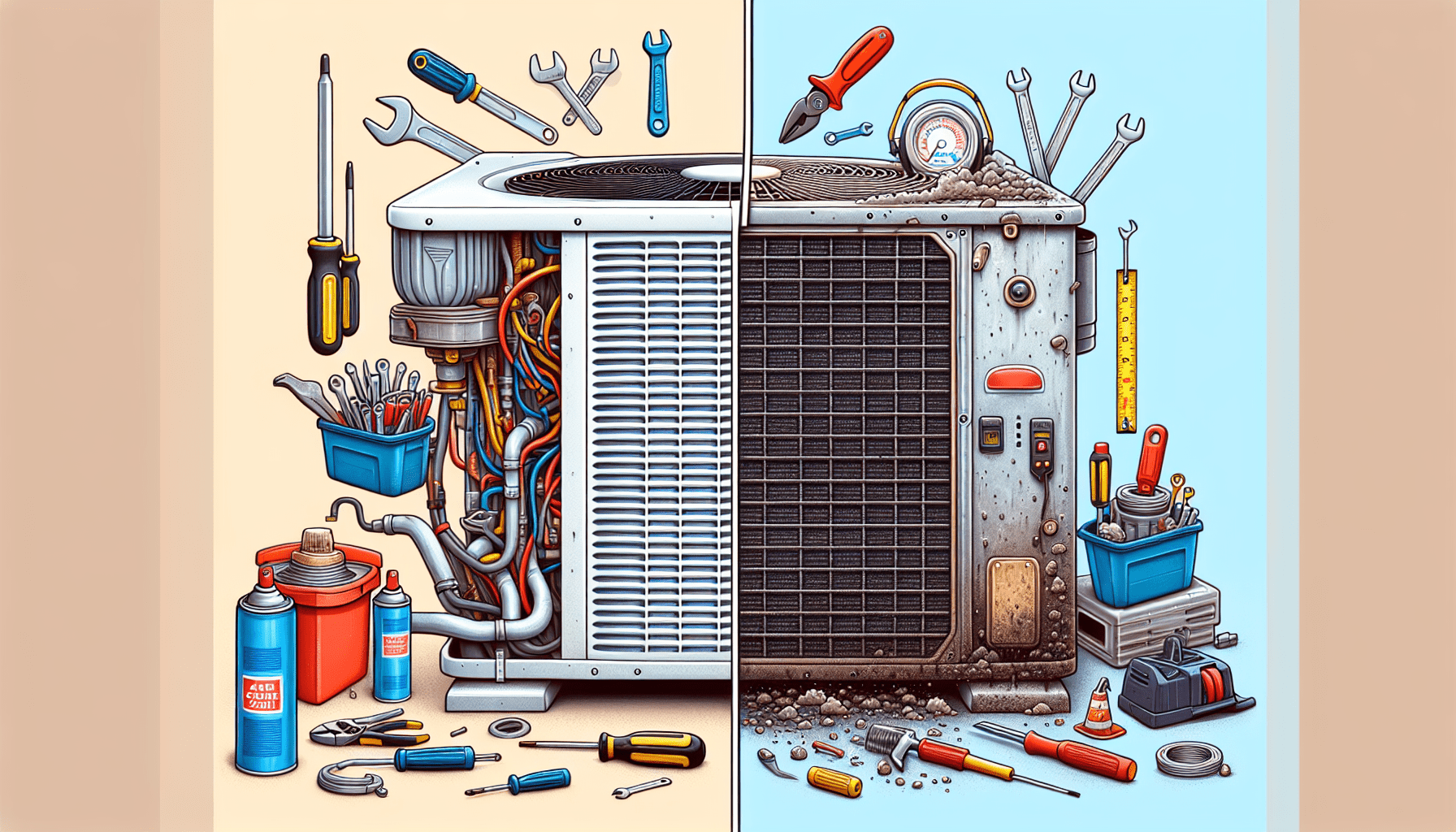Maintaining your air conditioning system is a crucial aspect of preventing expensive repairs. By regularly servicing and inspecting your A/C unit, you can identify potential issues early on and address them before they escalate into major problems. This not only ensures that your system operates efficiently, but it also prolongs its lifespan, saving you from the headache of costly repairs and replacements. In this article, we will explore the importance of regular A/C maintenance and how it can help you avoid unnecessary expenses down the line.
Understanding A/C Systems
Air conditioning (A/C) systems are essential for maintaining comfortable indoor temperatures, especially during hot summer months. Understanding the components of an A/C system, how they operate, and the different types of units available can help homeowners make informed decisions about their cooling needs.
Components of an AC System
An A/C system consists of several key components that work together to cool and circulate air within a building. The main components include the compressor, condenser, evaporator, expansion valve, and refrigerant. The compressor is responsible for pressurizing the refrigerant, while the condenser releases heat from the compressed refrigerant. The evaporator absorbs heat from the indoor air, and the expansion valve regulates the flow of the refrigerant. Regular maintenance of these components is crucial for the efficient operation of the A/C system.
How Cooling Systems Operate
Understanding how cooling systems operate is essential for grasping the importance of regular maintenance. The process starts with the compressor, which pressurizes the refrigerant and converts it into a high-temperature, high-pressure gas. This gas then flows to the condenser, where it releases heat and becomes a high-pressure liquid. The liquid refrigerant then goes through the expansion valve, which allows it to expand and cool down. As it passes through the evaporator, it absorbs heat from the indoor air, providing a cool and comfortable environment. Continuous use of the A/C system puts stress on its components, necessitating regular maintenance to ensure its optimal performance.
Different Types of Air Conditioning Units
There are various types of air conditioning units available, each with its own advantages and limitations. These include central air conditioning systems, window units, split air conditioners, and portable air conditioners. Central air conditioning systems are the most common and are designed to cool an entire building. Window units are suitable for cooling individual rooms, while split air conditioners have separate indoor and outdoor units connected by refrigerant lines. Portable air conditioners are ideal for temporary cooling solutions. Understanding the different types of air conditioning units can help homeowners select the most suitable option for their specific needs.
The Concept of Regular Maintenance
When it comes to A/C systems, regular maintenance is crucial for ensuring optimal performance and preventing costly repairs. Understanding the concept of regular maintenance, the ideal frequency for maintenance, and the difference between seasonal and year-round maintenance is essential for keeping an A/C system in top condition.
Defining Regular Maintenance
Regular maintenance refers to the routine upkeep and inspection of an A/C system to identify and address any potential issues. It involves tasks such as cleaning the unit, checking the refrigerant levels, inspecting the coils and filters, and ensuring proper airflow. By regularly maintaining an A/C system, homeowners can detect and prevent problems before they escalate, saving time and money in the long run.
Ideal Frequency for AC Maintenance
Determining the ideal frequency for AC maintenance depends on several factors, including the age of the system, its usage, and the manufacturer’s recommendations. As a general guideline, it is recommended to have annual maintenance performed by a professional HVAC technician. This allows for comprehensive inspection and servicing of the A/C system to ensure maximum efficiency and longevity.
Seasonal vs Year-round Maintenance
While scheduling seasonal maintenance is common, year-round maintenance is equally important. Seasonal maintenance focuses on preparing the A/C system for periods of high usage, such as summer. It involves cleaning the unit, checking the refrigerant levels, and inspecting the components. Year-round maintenance, on the other hand, involves regular check-ups throughout the year to address any issues that may arise and maintain the system’s performance even during off-peak seasons. Combining seasonal and year-round maintenance ensures the A/C system remains in optimal condition throughout the year.
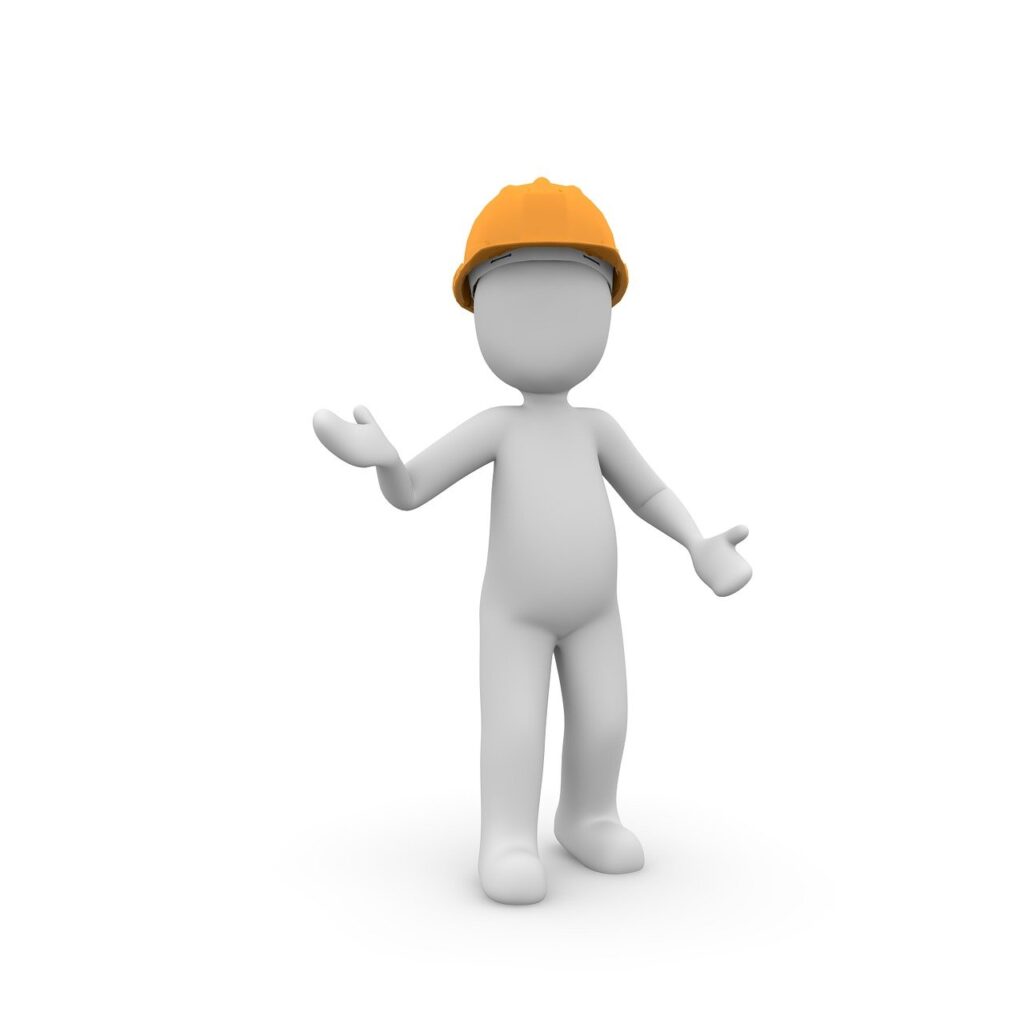
This image is property of pixabay.com.
Benefits of Regular A/C Maintenance
Regular A/C maintenance offers numerous benefits, including prolonged lifespan of the unit, enhanced energy efficiency, improved indoor air quality, and ensured safety of the system. Understanding these benefits can help homeowners realize the importance of investing in regular maintenance.
Prolonging Lifespan of Your Unit
One of the primary benefits of regular A/C maintenance is the prolonged lifespan of the unit. By regularly inspecting and servicing the components, any potential issues can be identified and resolved before they cause major damage. This helps prevent unnecessary wear and tear on the system, prolonging its overall lifespan and reducing the likelihood of costly repairs or replacements.
Enhancing Energy Efficiency
Regular maintenance plays a crucial role in maintaining the energy efficiency of an A/C system. Some common issues that can negatively impact energy efficiency include dirty coils, clogged filters, and low refrigerant levels. By regularly cleaning and inspecting these components, homeowners can ensure proper airflow and efficient cooling, resulting in lower energy consumption and reduced utility bills.
Improving Indoor Air Quality
A well-maintained A/C system contributes to improved indoor air quality. Dirty filters and coils can accumulate dust, allergens, and pollutants, which are then circulated throughout the building. Regular maintenance, such as cleaning or replacing filters and inspecting the coils, helps remove these contaminants, promoting cleaner and healthier indoor air. This is especially important for individuals with respiratory conditions or allergies.
Ensuring Safety of the System
Safety is a critical aspect of A/C maintenance. Faulty electrical connections, worn-out components, or leaking refrigerants can pose safety hazards, such as electric shocks or fire risks. Regular inspections and maintenance by a professional technician can help identify these potential dangers and address them promptly, ensuring the safety of the system and its occupants.
Identifying Common A/C Problems
Being able to identify common A/C problems is essential for homeowners to take appropriate action and prevent further damage. Some of the most commonly encountered issues include leaky ducts and condensation, frozen evaporator coils, dirty condenser coils, fan problems, and leaking refrigerant.
Leaky Ducts and Condensation
Leaky ducts and condensation can significantly impact an A/C system’s efficiency and performance. Leaky ducts can result in air loss, forcing the system to work harder and consume more energy to maintain the desired temperature. Excessive condensation can lead to moisture accumulation, fostering the growth of mold and mildew, which can pose health risks. Regular maintenance can help identify and seal any leaks, as well as address condensation issues to maintain optimal system performance.
Frozen Evaporator Coils
Frozen evaporator coils are a common problem caused by issues such as clogged filters, low refrigerant levels, or restricted airflow. When the coils freeze, the A/C system is unable to transfer heat effectively, resulting in reduced cooling efficiency and increased energy consumption. Regular maintenance involves checking the evaporator coils for any signs of freezing, identifying the underlying causes, and rectifying them before further damage occurs.
Dirty Condenser Coils
Dirty condenser coils can significantly impact the performance of an A/C system. Accumulated dirt and debris on the coils restrict airflow, preventing efficient heat transfer and forcing the system to work harder to cool the air. Regular cleaning and maintenance of the condenser coils help ensure optimal performance and energy efficiency.
Fan Problems
Fan problems can manifest in various ways, such as a noisy fan, slow rotation, or complete failure. Issues with the fan can result from motor problems, bent or damaged blades, or loose connections. Regular maintenance includes inspecting the fan for any signs of malfunction, lubricating the motor if necessary, and addressing any mechanical issues to prevent further damage to the system.
Leaking Refrigerant
Leaking refrigerant is a common problem that can lead to reduced cooling capacity and increased energy consumption. It can also cause damage to the A/C system’s compressor. Regular maintenance involves checking the refrigerant levels, identifying any leaks, and repairing them to ensure the system operates at peak efficiency.
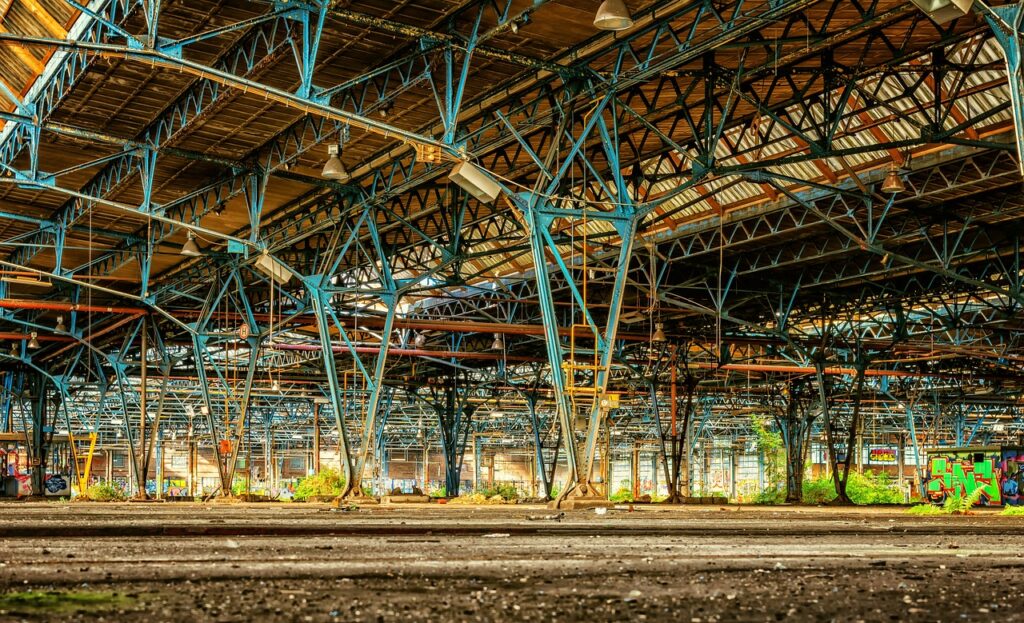
This image is property of pixabay.com.
Role of Regular Maintenance in Preventing Common Problems
Regular maintenance plays a crucial role in preventing common A/C problems from escalating. By conducting regular inspections, cleaning the system to prevent coil freezing, and ensuring proper refrigerant levels, homeowners can minimize the risk of major repairs or replacements.
Regular Inspection for Early Detection
Regular inspections allow HVAC technicians to identify potential issues at an early stage before they cause significant damage. By detecting and addressing minor problems, such as loose connections or worn-out components, homeowners can avoid more extensive repairs or system failures in the future.
System Cleaning to Prevent Coil Freezing and Maximize Efficiency
Cleaning the A/C system is an integral part of regular maintenance. Regularly cleaning the coils, filters, and other components helps prevent issues like coil freezing and maximizes the system’s efficiency. Clean coils allow for optimal heat transfer, resulting in better cooling performance and reduced energy consumption.
Ensuring Proper Refrigerant Levels
Proper refrigerant levels are essential for the optimal functioning of an A/C system. Low refrigerant levels can lead to reduced cooling capacity, increased energy consumption, and potential damage to the compressor. Regular maintenance involves checking and maintaining the proper refrigerant levels, ensuring the system operates efficiently and effectively.
Potential Cost Implications of Neglected A/C Maintenance
Neglecting A/C maintenance can lead to significant cost implications for homeowners. From the cost of major repairs or system replacement to increased energy consumption and health-related expenses, the financial impact of neglecting maintenance can be substantial.
Cost of Major Repairs or Replacement
Neglected A/C systems are more prone to major breakdowns or component failures, which can result in expensive repairs or even complete system replacement. Replacing essential components or investing in a new unit can be significantly costlier than regular maintenance and inspections.
Increased Energy Consumption
A poorly maintained A/C system consumes more energy to achieve the desired cooling, leading to higher energy bills. Dirty coils, clogged filters, and other maintenance-related issues decrease the system’s efficiency and force it to work harder. Regular maintenance ensures optimal performance and maximum energy efficiency, reducing long-term energy costs.
Health-related Costs due to Poor Air Quality
Neglected A/C systems can negatively impact indoor air quality, leading to various health issues such as respiratory problems, allergies, and infections. Treating these health problems can result in additional medical expenses and decreased productivity. Regular maintenance helps ensure cleaner and healthier indoor air, reducing the risk of health-related costs.
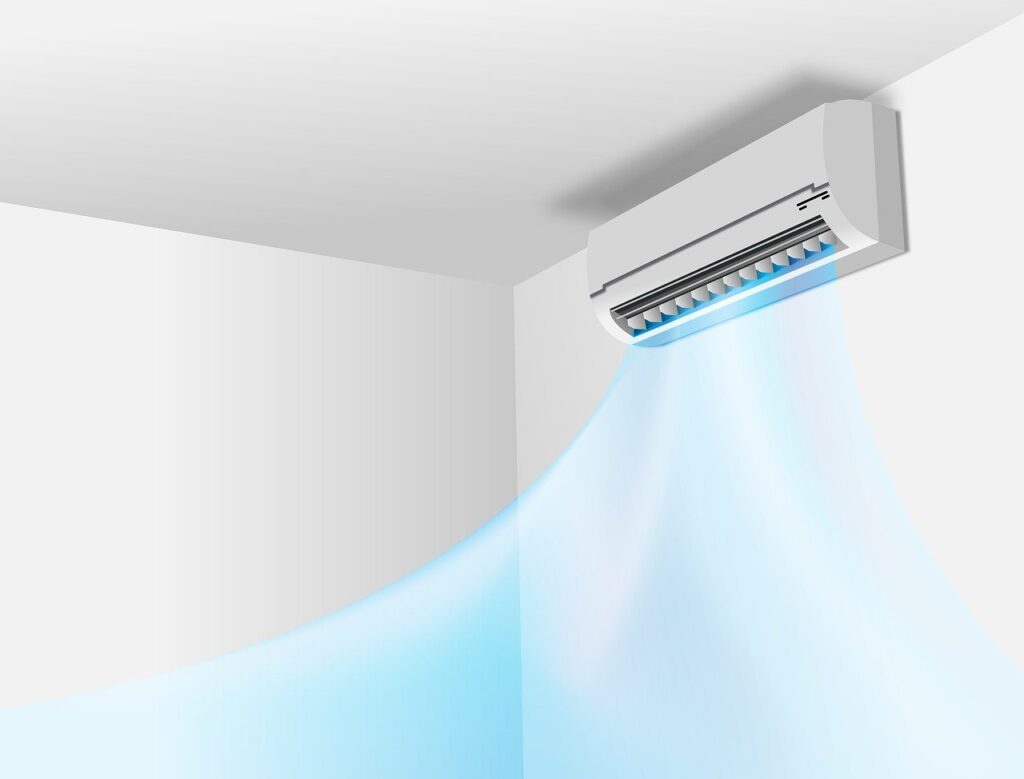
This image is property of pixabay.com.
DIY Maintenance vs Professional Routine Check-ups
While some maintenance tasks can be performed by homeowners, professional routine check-ups are necessary for the comprehensive upkeep of an A/C system. Understanding the tasks homeowners can handle themselves and the importance of professional maintenance helps ensure the system’s longevity and efficiency.
What Homeowners Can Do Themselves
Homeowners can perform certain maintenance tasks themselves to keep their A/C systems in good condition. These tasks include regularly cleaning or replacing the air filters, keeping the outdoor unit clear of debris, and checking the thermostat settings. Following manufacturer guidelines and performing these tasks regularly can help prevent minor issues and maintain the system’s performance.
Why Professional Maintenance is Necessary
Professional maintenance is necessary to ensure the thorough inspection and servicing of an A/C system. HVAC technicians possess the specialized knowledge and expertise to detect and address complex issues that homeowners may not be equipped to handle. They can perform tasks such as checking refrigerant levels, cleaning coils effectively, and conducting electrical system checks, ensuring the system operates optimally and safely.
Understanding What a Professional Inspection Involves
A professional inspection involves a comprehensive assessment of the A/C system to identify any potential issues. This typically includes inspecting and cleaning the coils, checking and adjusting refrigerant levels, testing electrical connections, lubricating motors, and ensuring proper airflow. A thorough inspection by a professional technician helps maintain the A/C system’s performance, prevents costly repairs, and ensures the safety of the occupants.
How to Choose a Reliable A/C Maintenance Service
Choosing a reliable A/C maintenance service is essential for high-quality care and service. Considering credentials, asking for recommendations, checking online reviews and ratings, and gauging customer service quality are crucial factors in selecting the right service provider.
Credentials to Look For
When choosing an A/C maintenance service, it is essential to consider the credentials of the technicians. Look for technicians who are properly licensed, insured, and certified by recognized HVAC organizations. These credentials indicate that the technicians have the required qualifications and knowledge to handle A/C maintenance tasks effectively.
Asking for Recommendations
Seeking recommendations from friends, family, and neighbors is an excellent way to find reliable A/C maintenance service providers. Ask for referrals from individuals who have had positive experiences with maintenance services and have seen noticeable improvements in their A/C systems after professional inspections.
Online Reviews and Ratings
Online reviews and ratings can provide valuable insights into the quality of service provided by A/C maintenance companies. Browse reputable online platforms and review websites to gauge customer satisfaction levels and evaluate the overall reputation of the service providers. Consider both positive and negative reviews to make an informed decision.
Gauging Customer Service Quality
Assessing customer service quality is essential for a satisfactory maintenance experience. Contact prospective A/C maintenance service providers and evaluate their responsiveness, willingness to answer questions, and professionalism. A service provider that prioritizes customer service is more likely to deliver reliable and trustworthy maintenance services.

Preventive Measures for Optimal A/C Performance
In addition to regular maintenance, implementing preventive measures can further enhance the performance and lifespan of an A/C system. Installing thermostats for better control, changing filters regularly, and keeping the outdoor unit clear of debris are simple yet effective measures homeowners can take.
Installing Thermostats for Better Control
Installing programmable or smart thermostats enables homeowners to have better control over their A/C systems. These thermostats allow for the customization of temperature settings based on specific time periods or preferences, reducing energy consumption and improving overall comfort. By optimizing the A/C system’s usage, homeowners can achieve better performance and efficiency.
The Importance of Changing Filters Regularly
Regularly changing the air filters is a simple yet crucial preventive measure for optimal A/C performance. Clogged or dirty filters restrict airflow, reducing the system’s efficiency and increasing energy consumption. Homeowners should follow manufacturer recommendations and replace filters at regular intervals to maintain proper airflow and ensure cleaner indoor air quality.
Keeping Outdoor Unit Clear of Debris
The outdoor unit of an A/C system should be kept clear of debris, such as leaves, grass, or dirt. Accumulated debris can obstruct airflow, make the system work harder, and cause damage to the components. Regularly inspecting and cleaning the outdoor unit helps maintain optimal functioning and increases the system’s lifespan.
Conclusion: The Cost-efficiency of Regular A/C Maintenance
Regular A/C maintenance is essential for preventing costly repairs and ensuring the longevity of the system. By understanding the components of an A/C system, the concept of regular maintenance, and the benefits it offers, homeowners can make informed decisions and take proactive measures to maintain their A/C systems effectively. From identifying common A/C problems to choosing reliable maintenance service providers, implementing preventive measures, and comparing costs, investing in regular A/C maintenance proves to be a cost-efficient approach in the long run. By prioritizing maintenance as a long-term investment, homeowners can enjoy optimal A/C performance, energy efficiency, improved indoor air quality, and peace of mind.
